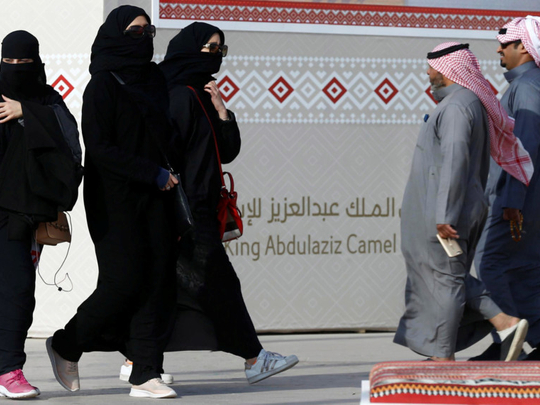
Some people choose to retire from life as they age. Others choose to live when retirement age approaches. In Saudi Arabia, it is not unusual to find both these groups flourishing. Given the fact that women have mostly been absent from the Saudi workforce, it is predominantly men who are facing these choices today.
When we talk demographics in this major Gulf Cooperation Council country, more than 70 per cent of the population is under the age of 30. This is the age group that attracts most of the attention. This group is sizeable and part of a dominant workforce to whom the kingdom’s various branches of government must cater to. In the process of setting up long-term development plans for the country, the aspirations of this age group must be given priority.
But what about the remaining lot?
A sizeable number of Saudis fall into the retiree category. These are people who have served their time, been in government or in the private sector and are now idle. They don’t get much press. The extended family that suited Saudis in the past has all but disappeared as many young Saudis have chosen to move out and into their own dwellings, rented or otherwise, with their new brides and have started a family. As a result, many of the older homes remain silent and mostly vacant, housing only an elderly couple, waiting expectantly for the weekly visit by their children and grandchildren to add some meaning and colour to their lives.
Others have packed their bags and moved on to greener pastures in economically favourable Asian country. Statistics indicate that tens of thousands of Saudi retirees have emigrated to foreign lands and return to the Kingdom only for the purpose of renewing their identity documents or to complete financial transactions. Research reveals these migrating thousands, some with their immediate family in tow, usually return to Saudi Arabia only to perform Umrah or Hajj, to attend the joyous family occasions and festivities, to share the sorrows of the passing away of loved ones or to complete some paperwork required by the government or some financial institution.
Speaking to a few of them, I could empathise with their sense of uncertainty. One such retiree emphasised that the migration phenomenon deserved a careful and in-depth study to understand the severity of this phenomenon on Saudi society and economy. This issue of migration needs to be solved as soon as possible before the situation gets out of hand, earning Saudi Arabia the distinction of being the only country in the world that is free of retirees!
If you ask any Saudi pensioner about the reasons for his emigration to a foreign land, the most common explanation you get to hear is that he is simply not prepared to wait and die alone. Emigration provides him with new challenges and raises his spirit in all fields. Also, his pension abroad goes a lot farther, especially in countries that have devalued their currencies in comparison with the Saudi riyal. Abroad, he can afford to own luxury accommodation in instalments. “Banks also finance them without the humiliation and exhaustion that banks in Saudi Arabia make one go through. Moreover, retirees can establish their own businesses with availability of plentiful of local labourers and without the need to provide them with accommodation or paying various fees and charges for them,” said one pensioner.
Many retired persons also preferred to emigrate so that they could have access to sufficient entertainment and leisure facilities that were easily available abroad but banned from Saudi Arabia for the last several years. Even innocent family entertainment was almost non-existent at homes in Saudi Arabia until very recently. “I’d like to go out with my family for an outing to a circus or a musical show or whatever. I am now at an age where I don’t have to accept such unnatural conditions that separate members of a family unit because of their gender,” one person said and this is often a common complaint.
Others add that there is also the freedom to take on a second wife, and a much younger one. “Between you and me, a retiree can marry a beautiful girl in the country he emigrates to without being criticised — unlike back home. One doesn’t have to be humiliated by choosing to marry a girl of his daughter’s age. In short, the retiree who moves abroad can enjoy life and live in the moment. Is it wrong?”, one asked.
Saudi authorities are sometimes criticised for their lack of empathy towards Saudi retirees. Look around and tell me if you see one sign that favours senior citizens in Saudi Arabia. Where are the retirees? Holed up in their homes and getting older by the minute, just staring at blank walls and ceilings. In other countries, these senior citizens are respected, they are accorded special privileges, there are clubs and associations that specially cater to their interests and even offer concessions and discounts to the aged.
Isn’t it time Saudi Arabia, too, started doing the same with its retired persons? They should not be treated as forgotten entities. Let’s not forget that one day, many of us will be headed towards the retirement road. And it will be shameful if in the twilight years of one’s life, one is left to stare at a blank wall.
Tariq A. Al Maeena is a Saudi socio-political commentator. He lives in Jeddah, Saudi Arabia. Twitter: @talmaeena.












